Puzzles for Teachers
Browse an extensive collection of printable puzzles, brain teasers, mazes, crosswords, digital activities and a whole lot more to challenge your elementary students in fresh and fun ways!
This teaching resource collection is teacher-created, with curriculum-aligned and editable resources available for both lesson planning and adding to your fast finisher activity box or sub binder!
Curious about using puzzles in your classroom or looking for fresh ideas? Read on for a primer from our teacher team!
Types of Puzzles
There's a whole host of puzzles out there you can use to get your students more engaged in learning, develop problem-solving skills, and reinforce the concepts you're teaching! Here are a few favorites from our teacher team (and you'll find printable versions of many of these in this collection)!
- Picture puzzles — Picture puzzles are a great teaching tool that require kids to use visual perception and problem-solving skills to identify patterns or differences in a set of pictures.
- Crossword puzzles — Often used by adults, these puzzles are kid-friendly too! They offer up written clues and require students to fill in a grid with words that intersect with each other.
- Tangram puzzles — These challenging puzzles for kids involve using a set of geometric shapes to create a larger picture or design.
- Logic puzzles — This learning tool requires kids to use reasoning and deduction to solve a problem. They usually involve a set of clues that need to be used to figure out the solution.
- Word searches — In this type of puzzle, a grid of letters is given with a list of words to find hidden within it. Students are challenged to go on the hunt for the word, often reading up, down, diagonally, and sometimes even backward!
- Spot the difference — A popular feature in kids' magazines, these require our students to find the differences between two nearly identical pictures.
- Sequence puzzles — Sequence puzzles involve arranging a series of objects or symbols in a particular order, based on a set of rules or patterns. For example, students may practice skip counting as they place puzzle pieces in order based on the numbers displayed on each piece.
- Maze puzzles — Yes, mazes count as puzzles! They challenge kids to find their way through a maze to reach a goal or endpoint.
- Matching games — This is another type of puzzle you may not think of as a puzzle per se, but it is! Matching games involve finding pairs of matching items, such as shapes, colors, or numbers, in a set of cards or objects.
- Tarsia puzzles — Similar to jigsaw puzzles, tarsia puzzles are made up of irregularly shaped pieces that fit together in a specific way to form a larger picture or pattern. This type of puzzle has a twist, however! In a Tarsia puzzle, each piece contains a problem or question related to a particular topic or subject area. The students must match the pieces together by finding the correct answer or solution to each problem or question. Once all the pieces have been matched, they form a larger picture or pattern that provides a visual representation of the topic or concept being studied.
How Do You Use Puzzles in the Classroom?
Whether you're using mazes to teach math or crossword puzzles in your reading centers, this is a versatile learning tool! Here are a few of the times they can come in handy:
- Introducing new concepts
- Reviewing concepts students have learned
- Reinforcing problem-solving skills
- Collaborative learning
- Learning through play
- Differentiated instruction
- Plus Plan
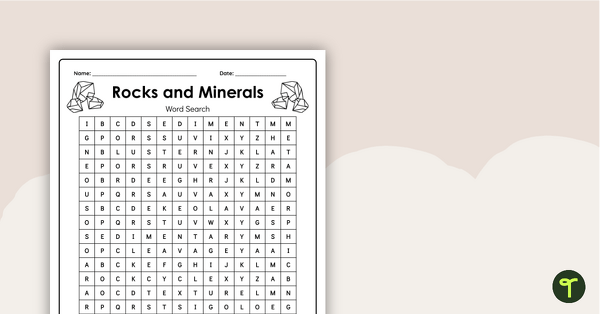
Rocks and Minerals Word Search
Introduce or review academic vocabulary with a printable Rocks and Minerals Word Search.
- Free Plan
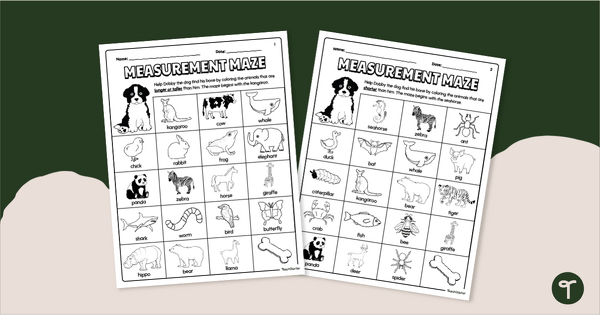
Measurement Maze Worksheets - Kindergarten
Teach your students to compare tall and short objects with a printable set of Kindergarten Math Maze Worksheets.
- Plus Plan
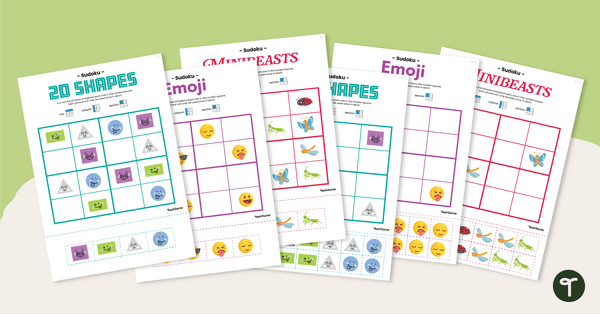
Picture-Based Sudoku for Kids
Use this set of sudoku for kids to enhance your students’ problem-solving and creative thinking skills.
- Plus Plan
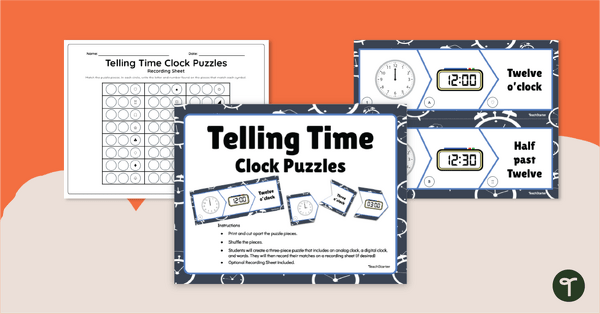
Clock Reading Puzzles- Half-Hour
Practice reading analog clocks, digital clocks, and time in word form with a set of printable Telling Time to the Hour and Half Hour Clock Puzzles.
- Free Plan
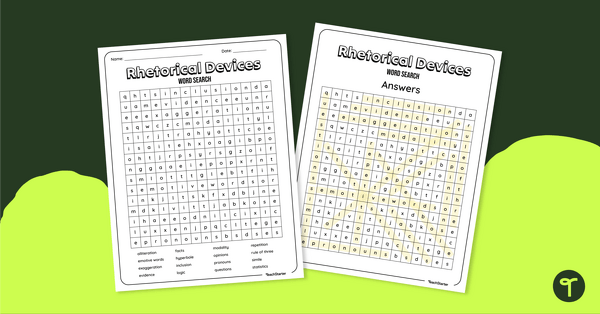
Rhetorical Devices Word Search
Familiarize your students with the most common rhetorical devices with a fun word search.
- Plus Plan
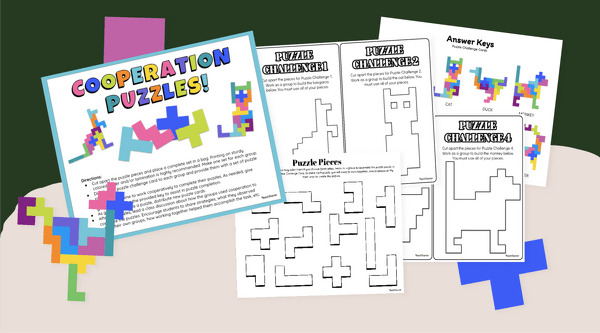
Cooperation Puzzles - Team-Building Activity
Explore the benefits of cooperation with a tangram-style team-building activity.
- Plus Plan
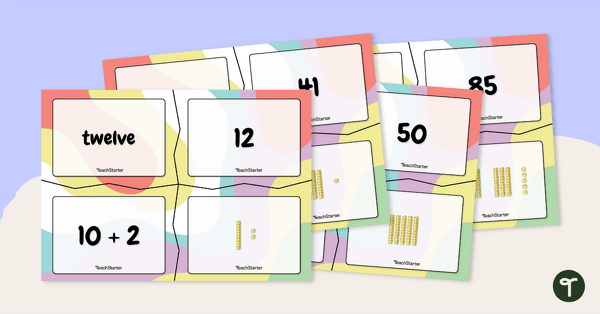
2 Digit Place Value Puzzles
Teach students the different representations of 2-digit numbers with this place value puzzle.
- Free Plan
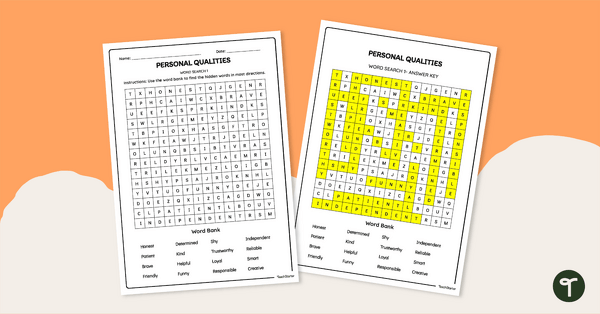
Personal Qualities Word Search
Explore different personal qualities with your students with this printable personal qualities word search.
- Plus Plan
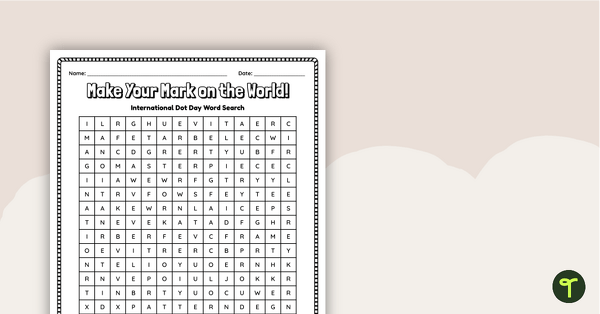
Dot Day Growth Mindset Word Search
Use this Dot Day word search activity to encourage students to Make Their Mark!
- Plus Plan
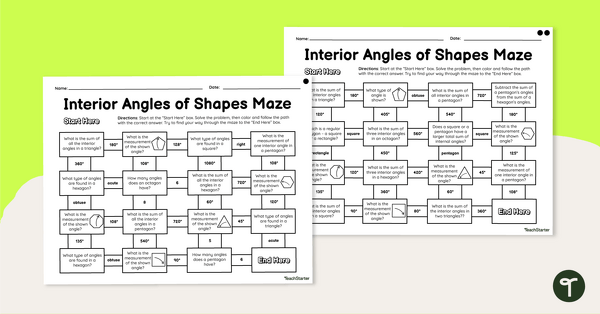
Interior Angles of Shapes – Differentiated Mazes
Explore the interior angles of regular shapes with this differentiated, maze-inspired worksheet.
- Free Plan
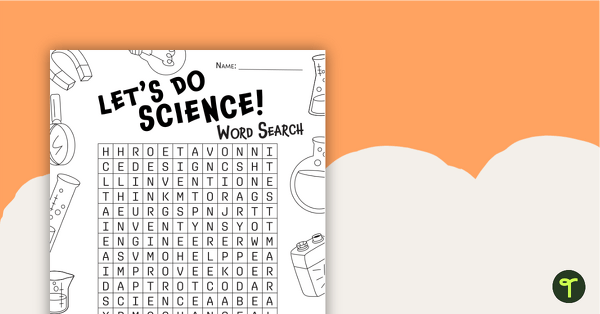
Innovate and Invent! Science Word Search
Build your students’ vocabulary around the topics of innovation and invention with a word search worksheet.
- Plus Plan
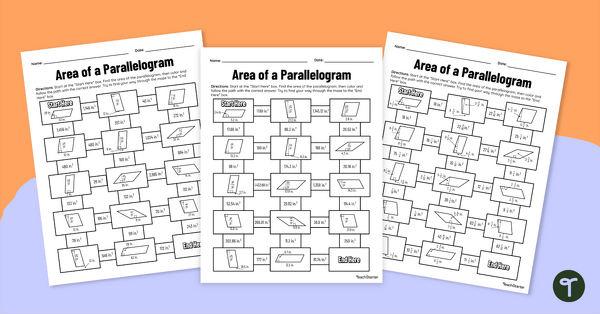
Area of a Parallelogram – Differentiated Math Mazes
Determine the area of different parallelograms with a set of differentiated math mazes.
- Plus Plan
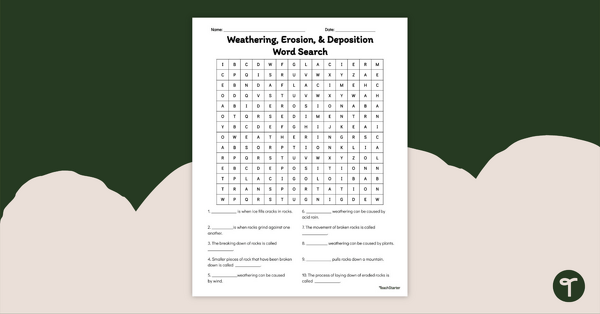
Weathering, Erosion, and Deposition – Word Search
Strengthen your students' understanding of weathering, erosion, and deposition terms with a vocabulary word search.
- Plus Plan
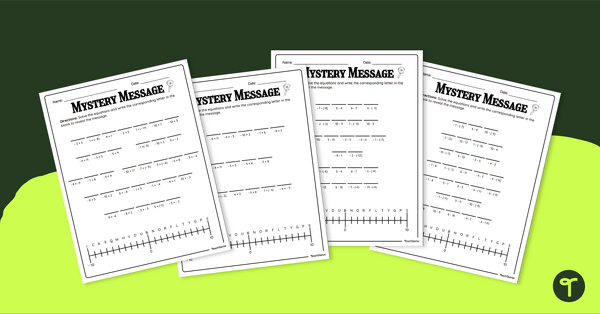
Adding and Subtracting Integers - Codebreaker Worksheets
Crack the positive and negative number code with four adding and subtracting integers worksheets.
- Plus Plan
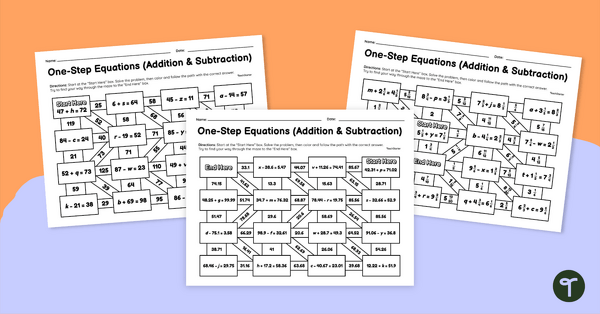
One-Step Equations (Addition and Subtraction) – Math Mazes
Practice solving one-step equations with whole numbers, decimals, and mixed numbers while working through a set of 3 math mazes.
- Plus Plan
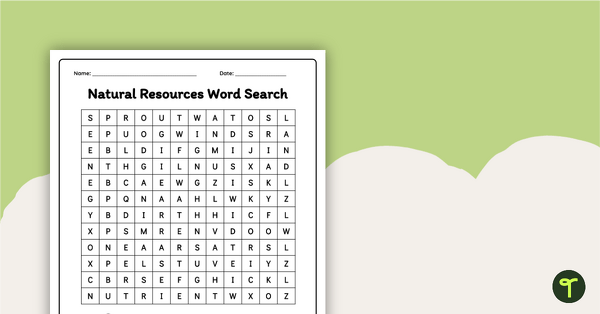
Natural Resources Word Search
Review the different natural resources with a word search.
- Free Plan
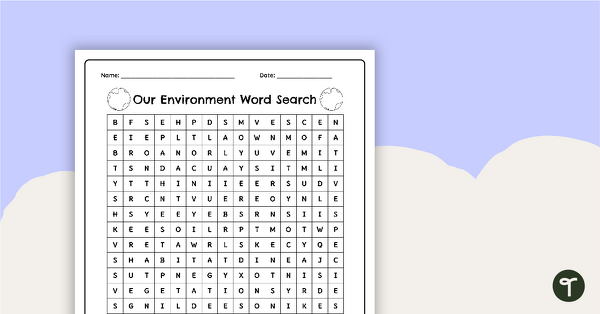
Earth Day Word Search - Printable
Identify environmental terms with this Earth Day word search.
- Free Plan
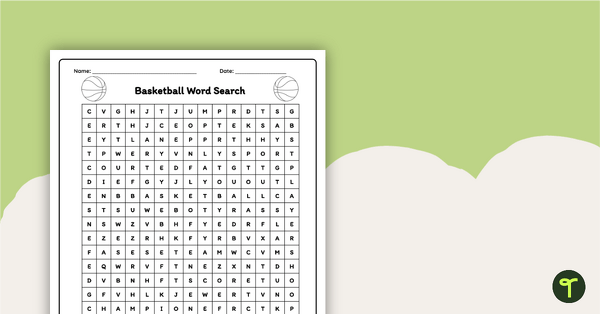
Basketball Word Search - Printable
Get ready for the big game with a fun basketball word search.
- Plus Plan
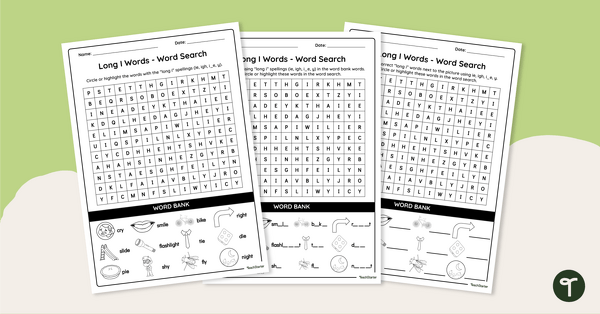
Long I Words - Word Search
Explore words containing some of the most common “long i” spelling patterns with this set of differentiated word searches.
- Plus Plan
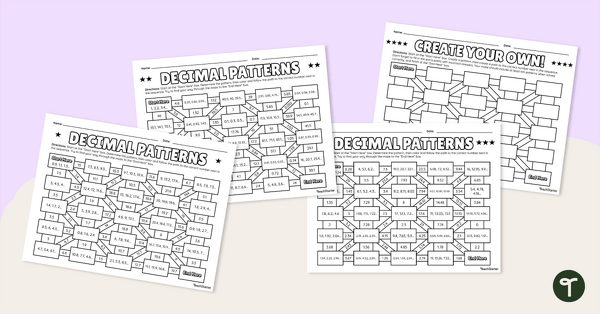
Decimal Patterns – Math Mazes
Find your way through this set of math mazes by determining the addition or subtraction pattern in a sequence of decimal numbers.
- Plus Plan
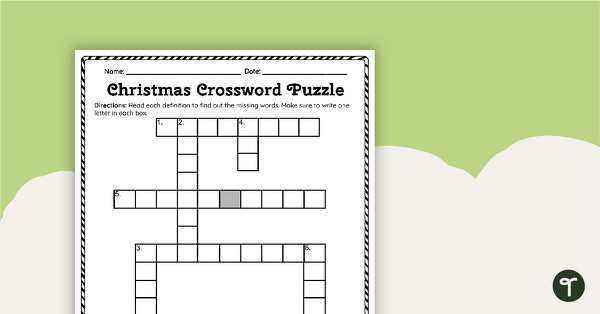
Christmas Crossword Puzzle
Have a bit of holiday fun with a set of three Christmas Crossword Puzzles.
- Plus Plan
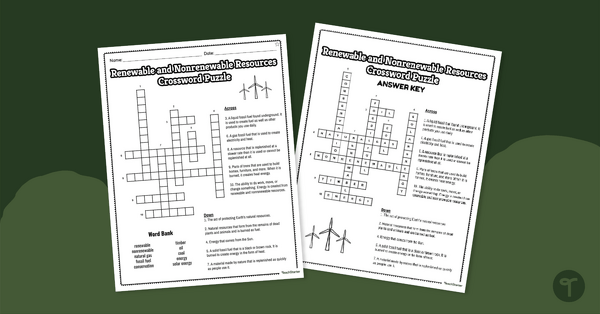
Renewable and Nonrenewable Resources Crossword Puzzle
Reinforce science vocabulary with a renewable and nonrenewable resources crossword puzzle.
- Plus Plan
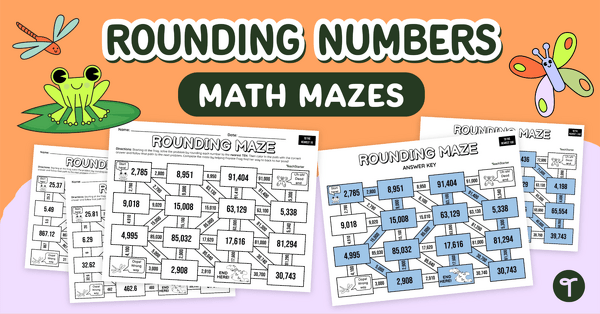
Rounding Numbers – Math Mazes
Round numbers to various places while finding your way through this set of 5 math mazes.
- Free Plan
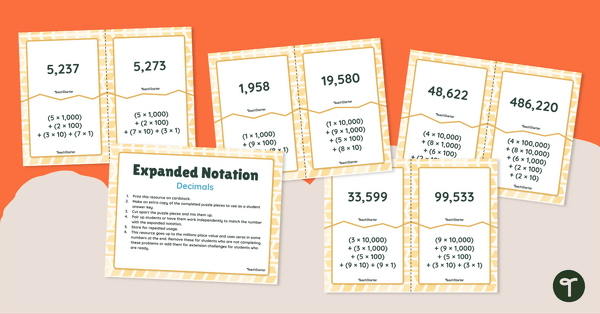
Expanded Notation Puzzles - Decimals
Practice expanded notation using decimals and whole numbers with this set of 28 puzzle pieces.
- Plus Plan
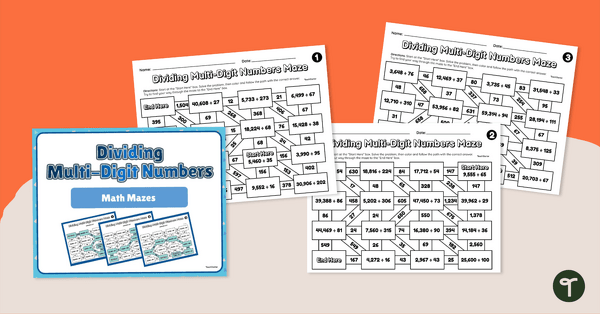
Dividing Multi-Digit Numbers – Math Mazes
Solve long division problems with multi-digit divisors while finding your way through this set of 3 math mazes.
- Plus Plan
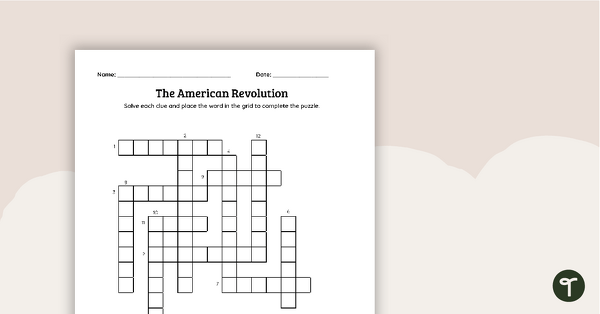
American Revolution Crossword Puzzle
Review Revolutionary War vocabulary with a crossword puzzle.
- Plus Plan
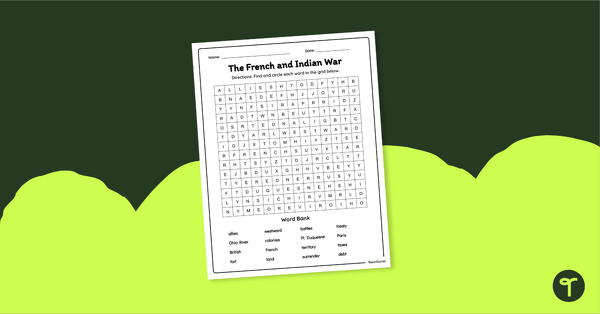
The French and Indian War - Word Search
Build academic vocabulary skills with a French and Indian War word search.
- Plus Plan
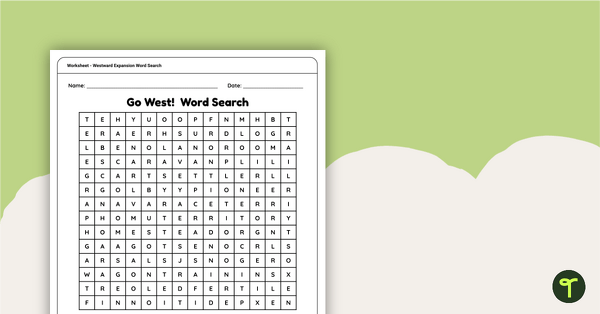
Westward Expansion Word Search
Increase academic vocabulary with a Westward Expansion word search.
- Plus Plan
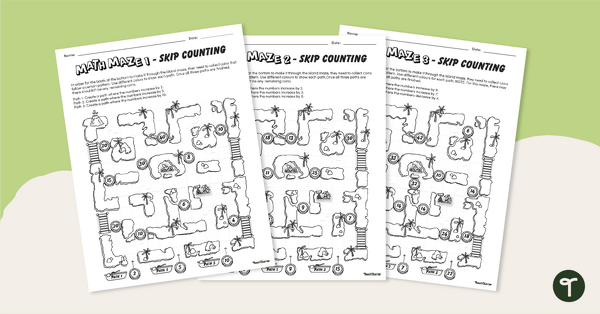
Math Mazes (Skip Counting)
Skip count your way through 3 printable math mazes that focus on number sequencing.
- Free Plan
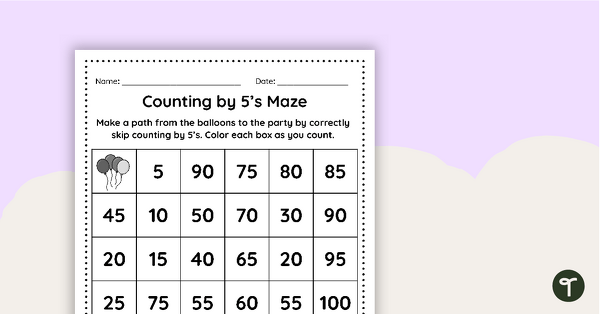
Counting by 5's Maze
Get to the party by skip counting to 100 with our counting by 5’s worksheet.
- Plus Plan
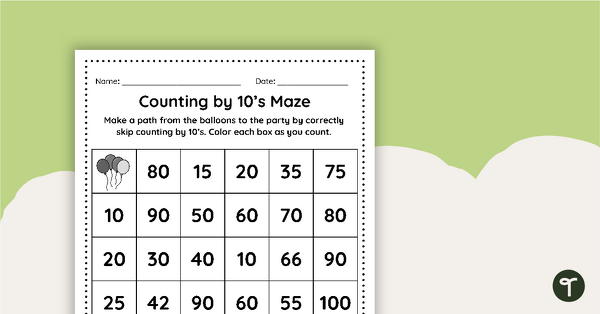
Counting by 10's Maze
Find the fun and learn to skip count by 10s up to 100 with this engaging maze activity!
- Plus Plan
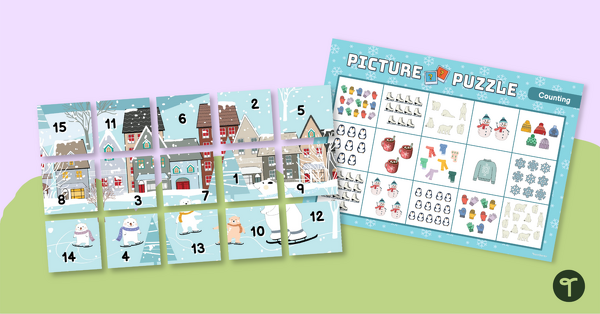
Counting Within 20 Picture Puzzle
Practice counting objects within 20 and matching groups to numbers through this 15-piece winter scene picture puzzle.
